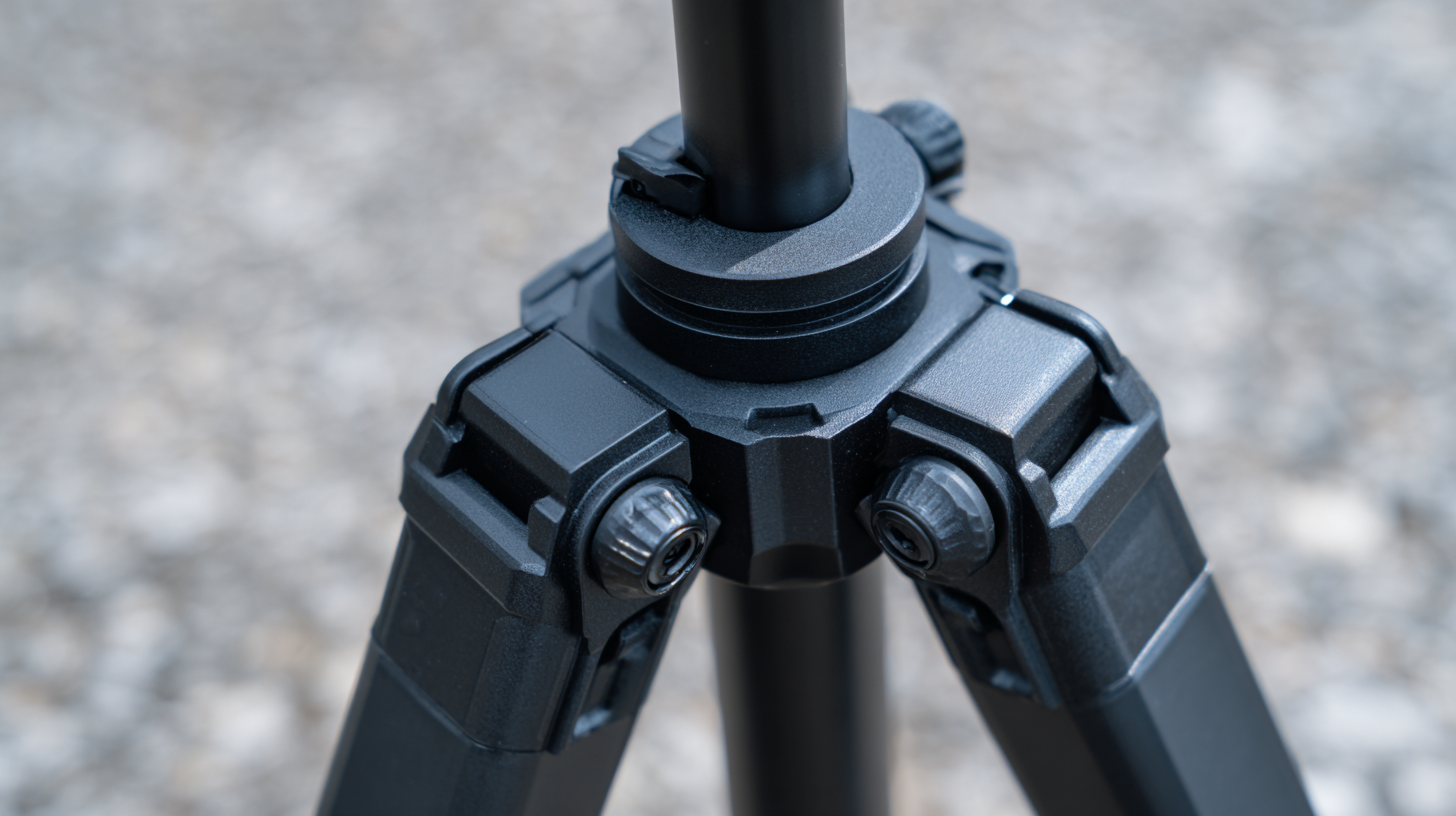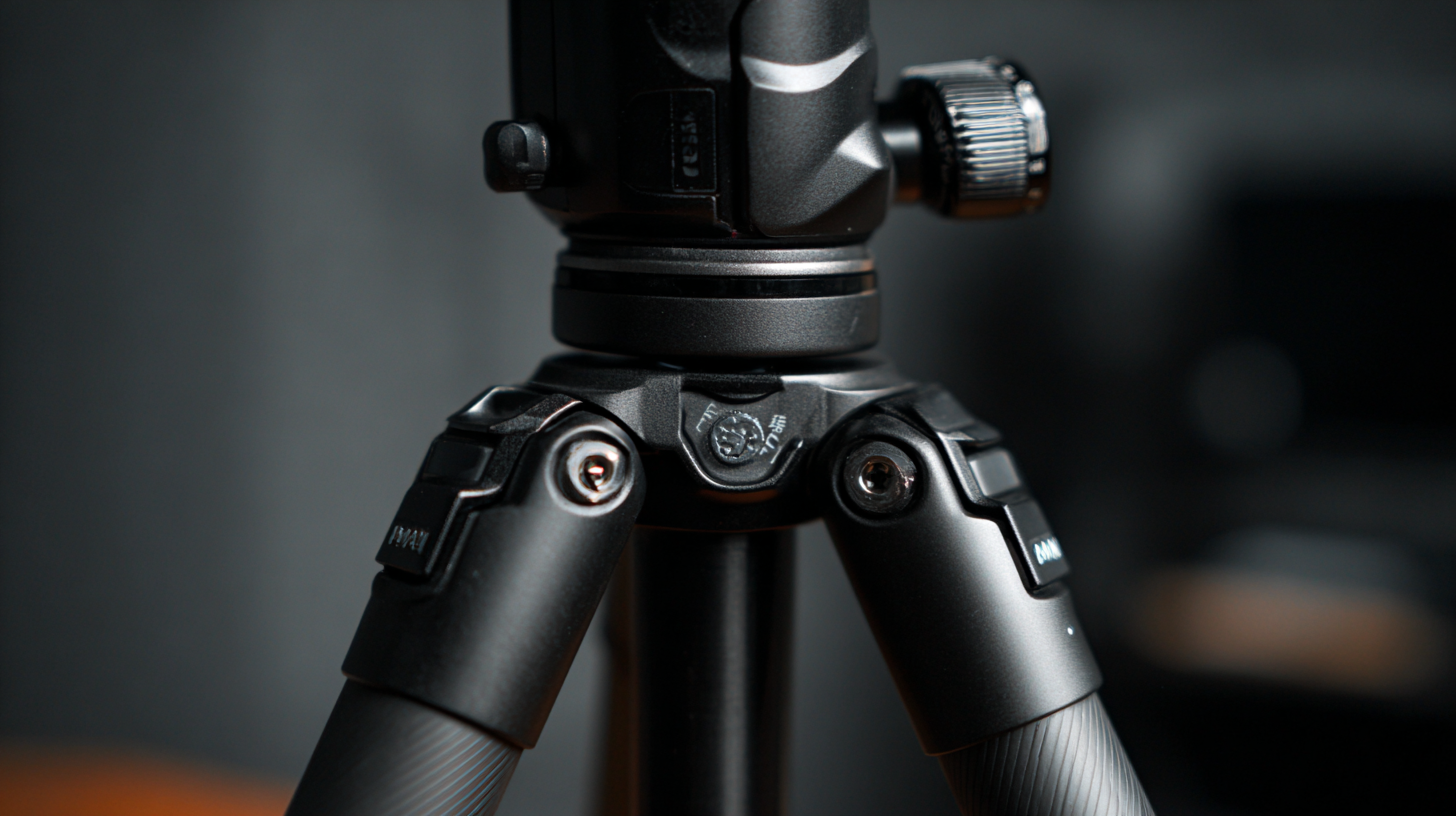In an era increasingly defined by globalization, the significance of import-export certifications cannot be overstated, especially in the realm of high-quality manufacturing. The carbon fiber tripod market, estimated to reach a valuation of over $1.2 billion by 2025, exemplifies the intricate balance between quality production and international trade. As manufacturers strive to maintain their competitive edge, adherence to global standards through appropriate certifications becomes crucial.
These certifications not only ensure product quality but also enhance marketability in diverse regions, reflecting a commitment to excellence.
 With China positioning itself as a leader in the production and export of carbon fiber tripods—leveraging innovative technology and robust quality control—understanding the certification landscape becomes pivotal for leveraging global opportunities and meeting the escalating demand for superior equipment among photographers and videographers worldwide.
With China positioning itself as a leader in the production and export of carbon fiber tripods—leveraging innovative technology and robust quality control—understanding the certification landscape becomes pivotal for leveraging global opportunities and meeting the escalating demand for superior equipment among photographers and videographers worldwide.
In today's interconnected world, import-export certifications play a pivotal role in facilitating global trade, especially for specialized products like carbon fiber tripods. According to a report by Grand View Research, the global carbon fiber market is expected to reach USD 5.52 billion by 2025, driven by increasing demand in various sectors, including photography and sports equipment. For manufacturers and exporters of carbon fiber tripods, obtaining the necessary certifications is not merely a legal requirement but a strategic advantage that enhances product credibility and consumer trust.

Import-export certifications ensure that products meet international standards for safety, quality, and environmental impact. The International Trade Administration emphasizes that compliance with these standards can significantly reduce barriers to market entry, thereby opening up opportunities for businesses to expand their reach. Furthermore, a study by the World Trade Organization indicates that countries with streamlined certification processes experience up to 20% higher exports. This underscores the importance of obtaining the right certifications for those looking to thrive in the competitive global market for carbon fiber tripods, ensuring not just compliance but also a robust positioning against competitors.
In the realm of professional photography, the significance of carbon fiber tripods cannot be overstated. With the industry evolving rapidly, these tripods provide unparalleled stability and portability, qualities that are essential for both amateur and professional photographers alike. Recent advancements in design, such as those found in the latest tripod kits, reflect an understanding of the demanding needs of modern photographers. According to a report from the imaging industry, approximately 75% of professional photographers now consider a tripod the most crucial piece of equipment for stabilizing their shots, particularly in challenging environments.
Moreover, the development of lightweight and robust tripods has been a game changer, as seen in the introduction of specialized kits that incorporate innovative technology. These carbon fiber tripods not only reduce the overall weight carried by photographers on the go but also enhance performance in terms of durability and vibration absorption. In fact, studies show that carbon fiber tripods can significantly improve long-exposure photography outcomes by providing a stable base, resulting in clearer images. As the demand for high-quality photography rises, investing in a carbon fiber tripod emerges as not just a choice, but a necessity for those looking to capture pristine imagery.
In the realm of international trade, particularly within the automotive sector, understanding import and export certifications is paramount for enhancing product marketability, including niche items like carbon fiber tripods. Companies looking to engage in this sector must familiarize themselves with the various certifications required for compliance with global trade regulations. These certifications ensure that products meet safety, quality, and environmental standards, which are increasingly scrutinized by both consumers and regulatory bodies.
As the automotive industry continues to be influenced by evolving market trends and global regulations, businesses must stay ahead of the curve by navigating the UK Trade Tariff effectively. Proper classification of goods not only facilitates smoother trade but also minimizes the risks of customs delays and penalties. The forthcoming Foreign Trade 2025 projection indicates that companies need to be proactive in adapting to potential government actions that could alter the trading landscape, making understanding these certifications and market dynamics even more critical for success.
In the realm of global trade, the significance of import-export certifications cannot be overstated, particularly in the competitive market of high-quality carbon fiber tripods. These certifications serve as crucial indicators of material quality and manufacturing standards, influencing a product's accessibility in various international markets. For manufacturers, acquiring recognized quality assurance certifications is not merely a regulatory formality; it is a strategic move that reassures potential buyers about the reliability of their products.
Moreover, these quality certifications help mitigate risks associated with international trade, such as compliance with stringent safety standards and environmental regulations. For consumers, products backed by credible certifications often reflect a commitment to excellence, making them more desirable. When a carbon fiber tripod is certified, it not only enhances the manufacturer's credibility but also aligns with consumers' growing preference for reliable and environmentally-responsible products, opening doors to new market opportunities. As global trade continues to evolve, the role of quality assurance certifications in ensuring product integrity and fostering trust will be paramount.
| Certification Type | Description | Importance for Trade | Market Accessibility | Regions Recognizing Certification |
|---|---|---|---|---|
| ISO 9001 | Quality Management Systems | Ensures consistent product quality and meets customer expectations. | Increases competitive edge in global markets. | Global (Widely recognized) |
| CE Marking | European Conformity Mark | Indicates product safety and compliance with EU directives. | Essential for accessing European markets. | European Union |
| RoHS | Restriction of Hazardous Substances | Ensures electronics are free from harmful substances. | Key for market acceptance in electronics. | Global, especially EU and Asia |
| ASTM Standards | American Society for Testing and Materials | Specifies material properties and testing methods. | Facilitates trade by ensuring product reliability. | USA, but recognized internationally |
| ISO 14001 | Environmental Management Systems | Demonstrates commitment to environmental sustainability. | Improves access to eco-conscious markets. | Global |
Navigating the international trade landscape for carbon fiber tripods requires a keen understanding of various regulations that govern import-export certifications. These certifications not only ensure compliance with safety standards but also facilitate smoother cross-border transactions. Different countries may impose specific requirements for carbon fiber products, from documentation proving the materials used to tests verifying durability and performance. Familiarizing oneself with these regulations is crucial for businesses aiming to access global markets.

Additionally, procurement of the right certifications can enhance a product's marketability. Consumers increasingly value sustainability and quality assurance, making certifications more than just regulatory obligations; they serve as significant selling points. By obtaining recognized certifications, businesses can build trust with potential international clients and gain a competitive edge, ultimately enhancing their brand reputation in the crowded market of carbon fiber tripods. This proactive approach in understanding and complying with international regulations not only mitigates legal risks but also paves the way for successful global trade ventures.
